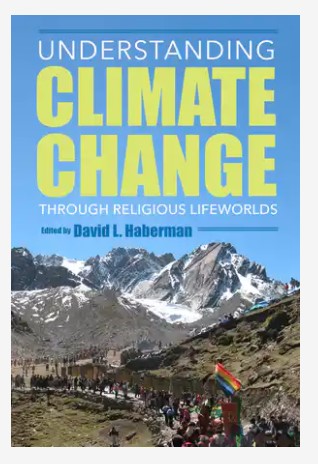Climate Change Never Travels Alone: Oceanian Stories
 Associate Professor Cecilie Rubow contributed with the chapter 'Climate Change Never Travels Alone: Ocenian Stories' in the book 'Understanding Climate Change through Religious Lifeworlds' edited by David L. Haberman.
Associate Professor Cecilie Rubow contributed with the chapter 'Climate Change Never Travels Alone: Ocenian Stories' in the book 'Understanding Climate Change through Religious Lifeworlds' edited by David L. Haberman.
How can religion help to understand and contend with the challenges of climate change?
The book presents a unique collection of essays that detail how the effects of human-related climate change are actively reshaping religious ideas and practices, even as religious groups and communities endeavour to bring their traditions to bear on mounting climate challenges.
People of faith from the low-lying islands of the South Pacific to the glacial regions of the Himalayas are influencing how their communities understand earthly problems and develop meaningful responses to them. This collection focuses on a variety of different aspects of this critical interaction, including the role of religion in ongoing debates about climate change, religious sources of environmental knowledge and how this knowledge informs community responses to climate change, and the ways that climate change is in turn driving religious change.
Understanding Climate Change through Religious Lifeworlds offers a transnational view of how religion reconciles the concepts of the global and the local and influences the challenges of climate change.
About the book
Haberman, David L et al. Understanding Climate Change Through Religious Lifeworlds. Bloomington: Indiana University Press, 2021. Print.
